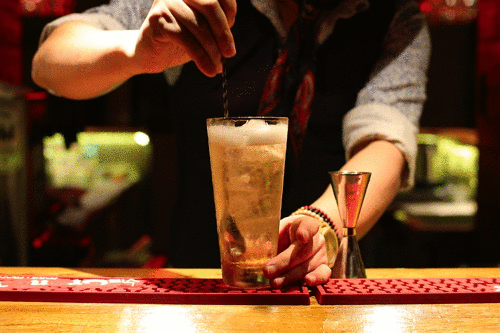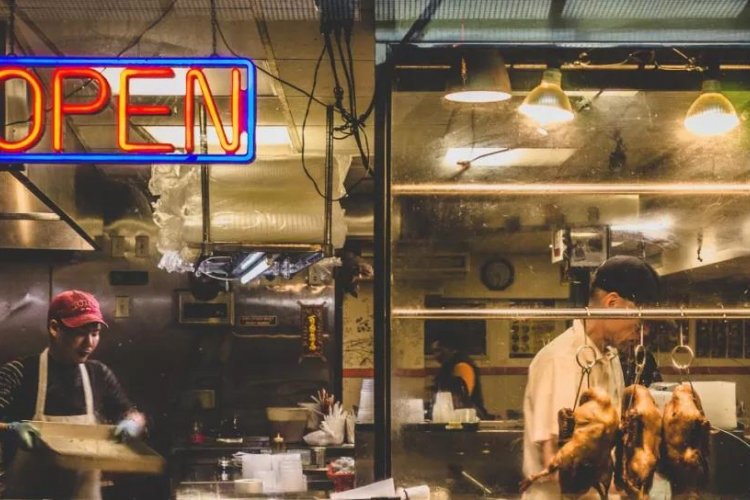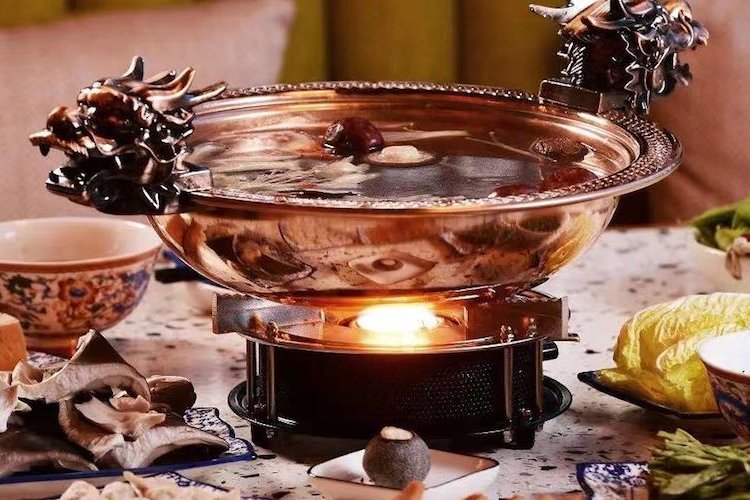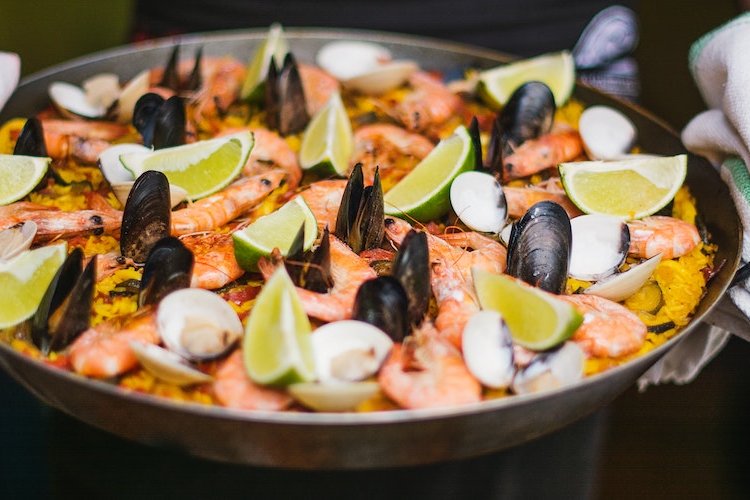It’s All About Pacing: Daruma Shows Us How to Enjoy Izakaya-Style Dining
The predominantly Euro-centric Nali Patio got a little bit more international this summer with the addition of Daruma, a Japanese izakaya from the team behind Bottega and El Barrio.

With its floor-to-ceiling glass frontage in the courtyard of Nali Patio, Daruma is a departure from the hidden, speakeasy-style entrances of many izakayas, a stylistic departure that extends inside. At first glance, with its wood interior, the restaurant looks like any traditional izakaya but focus in and you’ll see that there is more to it than meets the eye, starting with the aforementioned wooden paneling, which is made from reclaimed wood sourced from demolished houses.

Around the restaurant, red neon lights evoke the streets of Kabukicho, while complimentary red leather seating adds a touch of vintage Americana, which is echoed in the '60s rock and roll soundtrack. In the center of the room, red leather and stainless steel stools sit around a wooden bar, simultaneously calling to mind a 1950s diner and a traditional sushi bar. Together, all of these elements create a thoroughly modern izakaya experience.

It’s a smart and trend-conscious move for Daruma in a market that isn’t exactly short of Japanese restaurants. Japanese cuisine is often noted for its adherence to tradition but if you visit an izakaya in Tokyo these days you’re as likely to see Caprese and carpaccio on the menu as you are yakitori and edamame. The izakaya format allows for, if not positively encourages, plenty of innovation and experimentation and Daruma has certainly leaned into that with dishes such as the edamame with garlic butter (RMB 28). If you think regular edamame are addictive then just wait until you’ve tried these. They also make for the perfect pairing with a pint of ice-cold Asahi beer, as does the deep-fried spaghetti (RMB 18).

Daruma does keep it authentic where it counts, particularly when it comes to their yakitori. The chicken and leek skewers, for example, are as tender as any we’ve tasted in Japan, with the requisite smokey char from the charcoal grill. That being said, Daruma isn’t afraid to apply a twist or two here, either. The chicken meatball skewer (RMB 20) is traditional in all ways apart from the dollop of mascarpone served alongside, which is mixed with a raw egg yolk table-side to create an incredibly rich sauce. It’s little wonder that this is one of their bestsellers.

A long, slow meal of several rounds of skewers makes for a good excuse to order a large bottle of sake. Daruma offers 15 different types of sake by the bottle, including the wildly popular Dassai 23 junmai daiginjo, (often considered to be one of the best sakes around) as well as a handful by the glass and carafe. Don’t know what junmai daiginjo means? Still feel slightly intimated by the idea of ordering sake? You’re not alone; sake is still not exactly a well-understood drink in many places outside of Japan. However, Daruma want to help people get past the misconception that sake is out of reach. The menu includes helpful tasting notes for each type of sake and the staff, especially ebullient restaurant manager Osamu, will be happy to offer suggestions and recommendations.

Speaking of drinks pairings, with winter on the way consider ordering a bowl of Daruma’s rich abura soba (RMB 68) alongside the smokey Talisker highball (RMB 68). Hailing from Tokyo, think of abura soba as ramen that has shed its broth – thanks to the combination of fat and shoyu tare (a soy sauce-based seasoning) used to season the noodles, the dish has a richness akin porky tonkotsu broth. Mixed with the onsen egg on top, the seasonings form a silky sauce, not unlike a traditional carbonara. The smokey flavors of the Talisker in the whiskey highball play well against the pork that tops the dish, complementing it while also cutting through the richness.

Highball in hand, it’s easy to lose a few hours in the warm wooden embrace of Daruma’s almost cave-like interior. The expansive menu invites exploration, the perfect opportunity to get to know izakaya cuisine a little better.
This post is paid for by Daruma
Photos: Uni You, courtesy of Daruma







